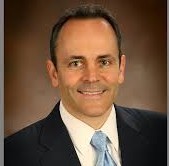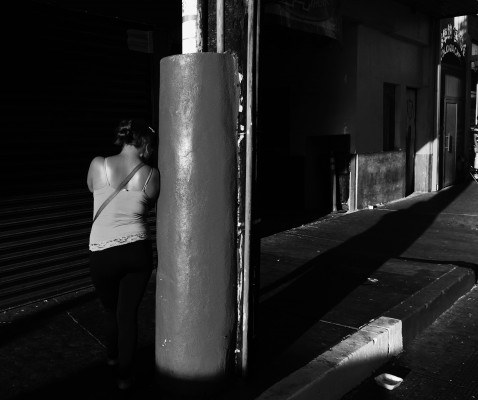Category Archives: Dreamland
Heroin and the Super Bowl
Filed under Dreamland, Drugs, The Heroin Heartland
Thanks Kentucky Gov. Bevin

DREAMLAND, “Best of” lists, & New Rules for Authors
I don’t think I’ll have a nicer time, as an author, than I’ve had in the last few weeks.
For starters, one morning Entertainment Weekly selected Dreamland as among the year’s 10 best books (“like a David Simon TV Show gone cosmic”). That afternoon, Bloomberg Business ran a piece with Princeton Prof. Angus Deaton, Nobel Prize winner for economics, recommending the book as his favorite of the year.
Both ends of the culture endorsing a book on the same day – I don’t think that’s happened before.
I appreciated that because when I began this book I thought I was writing a drug-crime story. Midway through, I realized the book was really about where we are as a country, about what happens when, as a culture, we shred community, export our jobs, build isolation and call it suburbs, claw at government and forgive the private sector its trespasses, and exalt consumption and seek pleasure and call them happiness.
Heroin is simply the embodiment of values we’ve fostered for 35 years. Isolation is its natural habitat. Doesn’t have to be that way. The antidote to heroin isn’t naloxone; it’s community.
Anyway … I thought I’d write to suggest my book to those of you looking for Christmas presents.
I know, it’s hucksterism. But the rules for authors these days are:
1) Write like hell; 2) Rewrite always; 3) Read a lot; 4) Talk to lots of different people; 5) Pay attention; and 6) Always be branding, marketing and promoting yourself because if you don’t, no one else will.
So, given No. 6, I’ll just quietly let you know that, in addition to EW and Bloomberg, in the last few weeks Dreamland was selected in “Best Books of the Year” lists by … Amazon.com, Slate.com, the WSJ, Seattle Times, Boston Globe, St. Louis Post-Dispatch, and Audible.
(In the two weeks after posting this, Buzzfeed, Daily Beast, Texas Observer, and the Guardian also added Dreamland to their Books of the Year lists. My thanks to each of them.)
Drug Czar Michael Botticelli named it his favorite book of the year – that was nice of him. So did the governor of Kentucky, Matt Bevin. Nice of the governor to do that, too.
You can see links to all this at my website.
Okay, so that’s done. Please have a happy holiday season, walk a lot, and take care of yourself and others you love.
Forcing Pharma to Pay To Take Back Drugs
The Los Angeles County Department of Public Health is today holding hearings on a proposal that would force pharmaceutical companies to pay to “take back” their drugs and needles that are not used by consumers.
Los Angeles County is following the lead of Alameda County in northern California, which enacted an ordinance requiring pharmaceutical companies to provide funds to collect and dispose of unused pills. The ordinance survived Supreme Court review last spring, and is now in place under the concept of Extended Producer Responsibility (EPR).
According to the L.A. County department’s website, “EPR is an environmental protection policy approach that recognizes the responsibility of a manufacturer or producer of a product to steward that product through the post-consumer stage of its lifecycle.”
This has become an issue due to overprescribing of addictive narcotic painkillers over the last two decades – often following routine surgeries. Frequently patients are prescribed 60 or 90 Vicodin, Percocet, or Oxycontin pain pills, of which they often use only a small fraction, leaving the rest in their medicine cabinets. Many of those pills have been discovered by kids in the home, their friends, by workers doing jobs at houses, or otherwise entered the black market.
These overprescribed and unused pills have added enormously to the street supply of pills and are a large part of why the country is in the midst of an unprecedented scourge of opiate addiction.
Profits from the sale of these pills have accrued to pharmaceutical companies, while the costs of dealing with that addiction have been borne by taxpayers – cities, counties, jails, coroners, police and public health departments.
One response has been Drug Take-Back days, which have spread nationwide. In 2014, 5 million pounds of drugs were taken back during these events nationwide, according to the National Safety Council. (LA County’s interim health director estimates some 200 million pounds remain of these drugs remain in medicine cabinets around the country.)
Of course, the problem is who pays to take back these drugs, and to then dispose of them. Up to now, again, public agencies, typically cities, counties or the DEA, have foot the bill.
The move to push pharmaceutical companies to contribute is new. Counties and cities across America might want to look into this new kind of ordinance as they cast about for ways to pay for taking back the enormous quantities of highly addictive painkillers still out there.
Filed under Dreamland, Drugs, The Heroin Heartland
Pope Francis, Community and Heroin
I’m speaking at Notre Dame University today, the day that Pope Francis gave his beautiful talk to Congress.
What struck me about his speech was not just what he said, for we’ve heard some of that before, though it never gets old. But what struck me most was the way he said it: softly, slowly, building each idea logically on the last.
We live in an era of bombast. It is everywhere. It’s not just Donald Trump, who personifies it, in my opinion. It’s loud-mouthed, poorly spoken athletes on ESPN. It’s crank screechers on 24-hour news and talk ra dio. Reality show bimbos. It’s the babble of unimportant breaking news that takes up so much space on newspaper websites. The constant yammer on Facebook about stuff that is really personal and ought to be kept that way. We never get a minute to ourselves, it seems.
dio. Reality show bimbos. It’s the babble of unimportant breaking news that takes up so much space on newspaper websites. The constant yammer on Facebook about stuff that is really personal and ought to be kept that way. We never get a minute to ourselves, it seems.
Of course, our national politics is infected with it. Congress appears incapable of doing anything but taking one extreme or the other. Talking points – that’s an interesting concept. “Talk to us about X…” is another – just open your mouth and start talking, implying that thought doesn’t need to occur first.
Thus it was so therapeutic to walk along the quiet paths of the school’s campus and listen to Pope Francis use terms like “cooperation,” “union,” “community.” It was sweet to hear him talk about the monk Thomas Merton.
These themes – or the lack of them in our civic life – are integrally wrapped up in why we have so much heroin abuse in America today.
I believe we’ve spent decades destroying community, mocking and clawing at the girdings of government that provide the public assets and infrastructure that we took for granted and that make communal public life possible. We exalted the private sector, and accepted the free market as some infallible God and thus allowed, encouraged even, jobs to go overseas.
We seemed to fear the public sphere. Parents hover over kids. Alarmed at some menace out in public, they accompany their kids everywhere they go. It all seems connected to a fear of pain, an idea that we can avoid pain, avoid danger. As a country, meanwhile, we have acted as if consumption and the accumulation of stuff was the path to happiness.
We’ve built into our suburbs an isolation that we called prosperity. Added to that mix was the expansion of technology that connects us to the world but separates us from our next-door neighbor.
We wound up dangerously separate from each other – whether in poverty or in affluence.
Kids no longer play in the street. Parks are under-used.
Why then do we wonder that heroin is everywhere?
Heroin turns every addict into narcissistic, self-absorbed, solitary hyper-consumers. A life that finds opiates turns away from family and community and devotes itself entirely to self-gratification by buying and consuming one product – the drug that most makes being alone not just all right, but preferable. It is the final expression of values we have fostered for 35 years.
I believe more strongly than ever that the antidote to heroin is community – doing things with neighbors in public in a way that once came quite naturally.
That’s why I also loved Pope Francis’s speech. He seemed to be touching on the stuff that troubles us as a country most deeply – and for which heroin is just the latest, though perhaps most potent, symptom.
And he did so quietly, softly – which I hope meant that people heard him more clearly.
Filed under Dreamland, Drugs, Global Economy, Los Angeles
Heroin & Hyperconsumption – A Poem
Ever since beginning work on my book, Dreamland, I’ve been struck by the way opiates isolate those addicted to them.
As I wrote and researched, they grew into a metaphor for modern American life.
Opiate addiction, seems to me, is some kind of final expression of our own destruction of community, our lack of connection across the country – both in poor communities and wealthy ones. 
We exalt consumption and the individual over community and have for a long time now.
These drugs seem to fit that; they turn everyone who abuses them into self-absorbed, lonely hyper-consumers.
The poem below was written by Andrew Smith, one of the thousands of Americans who died in 2014 of a heroin overdose. He was 24.
His mother, Margie Borth, discovered it after his death.
Simulate the Static
by Andrew Smith
____
The waiting, oh god
The waiting
The parking lots, the bathrooms, the empty parks that close after dark
The driveways, the bus stops, the car backseats
The posh bank lobbies, flea bag motel rooms, gas station pumps
Oak trees, palms, and retention ponds meant to beautify
The ditches, the swamps, and one off dead roads that lead to nowhere
And the loneliness of that trap.
The broken windows,
The made for TV dinners
The busted speakers blaring bass on a burner cell phone
The children going hungry, ignored in the corner
Staring at a broken television; simulating static.
The characters
The hangers-on, the worn out, the washed up
The good, the bad, the ugly
and the pretty young white girls with the blank eyes
Staring in awe at this newfound world.
The sun is setting and it’s starting to rain
My eyes are closed and I’m wishing I’m somewhere else.
When I hear a tap on my passenger window
Within 30 seconds, he’s gone
And the wait seems like a thousand centuries ago.
In this moment, I rest my eyes a second
Breathe a sigh of relief and know that all is right with the world
At least for these brief few hours.
The rain falls and my windows are up
It casts shadows across the dashboard
And the radio plays a news story
From a country whose language I do not speak
And a land I do not know.
Life is a quest
And we all search for something:
Money, fame, power, an identity.
For most they never find it;
And like a mirage in the desert,
it wavers in allure on their weary walk forward.
For others, they do.
And what’s worse,
They’re left in the emptiness of what it means.
But in this moment a fleeting comfort comes to me
And I know I’m not alone.
(Feb 2014)
Filed under Dreamland, Drugs, The Heroin Heartland, Uncategorized, Writing
`Two are better than one’ … Why heroin now?
“Two are better than one … for if they fall, the one will lift up his fellow; but woe to him that is alone when he falleth, for he hath not another to help him up.” King Solomon
Those who know me will find it strange to read me quoting the Bible. 
But these words, which I just read for the first time, talk about what we’ve lost and what has tenderized the country for widespread heroin and pain-pill addiction described by the CDC/DEA in my blogpost below.
We are an enormous country too often isolated, siloed in our rooms/phones/cars alone.
The magnificent ethos of self-reliance that began this country has decayed into one that holds that the individual is always superior to community – though self-reliance was only made possible by assets the community provides.
It holds that the private sector is efficient and government cloddish. It holds the free market as a kind of God, infallible.
It holds that every tax dollar will be wasted by government, so we starve it and make sure it cannot provide the basis for community that is its natural role. Yet mediocrity in business is to be rewarded with towering compensation, and part of that is that we’ll look the other way as it destroys jobs that sustain our communities.
And this reigning ethos further insists that consumption, and by extension the avoidance of discomfort and the eternal search for convenience, is our point on earth.
In such a world, naturally legions of people dose themselves on substances that numb pain – drugs that turn everyone addicted to them into hyperconsumers, self-absorbed and alone, and with no one to help them when they fall.
Filed under Dreamland, Drugs, The Heroin Heartland


